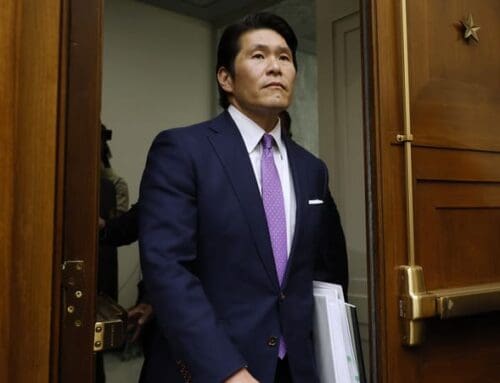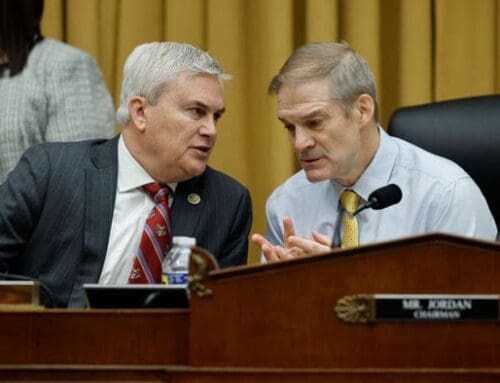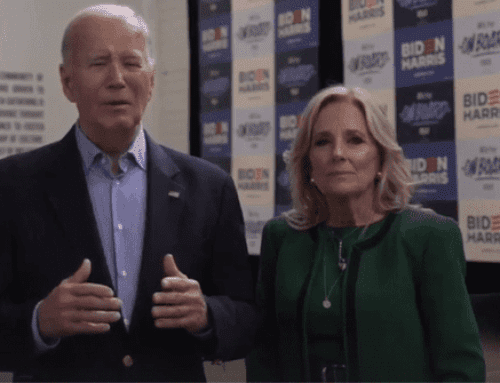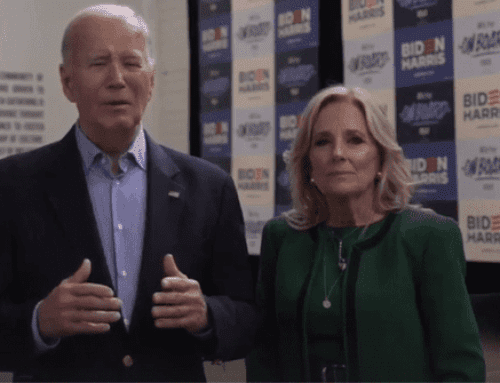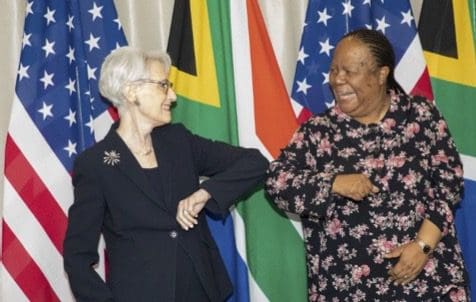

National Interest discarded
Over the past week or so, foreign policy has gained a rare foothold in the news cycles of a country more concerned with its domestic wellbeing than with its standing in the world or interactions with its peers. Two stories drove this: the first was the address by the Minister of International Relations and Cooperation, Dr Naledi Pandor, to a conference of Palestinian Heads of Mission. The second, was the publication of a document by the Department of International Relations and Cooperation on South Africa’s National Interest.
Predictably, the first story attracted much more attention. Palestine, Israel, the Middle East are matters that generate a great deal of noisy excitement. The theatrics of the event could only have encouraged this: the binary, uncompromising worldview on display, intemperate language about Israel, the apartheid analogy, the minister donning a keffiyeh – all of which the country has seen before – along with revelations that the Palestinian embassy in Tshwane was subsidised by South Africa (although the Department had publicly reported this for some years).
The document, entitled A Framework document on South Africa’s National Interest and its advancement in a Global Environment, got a much more subdued reception. It’s doubtful that it was even noticed by more than a small core of analysts and obsessive news readers. That is unfortunate, since it underlines an exponentially more important issue than the relationship of the government and ruling party with the Palestinians.
As Carien du Plessis wrote in Business Day, the document attempted ‘for the first time since 1994, [to] define the principles and values that guide the country’s interaction with the rest of the world.’
Actually, this is not entirely true, as many of the sentiments in this document have appeared previously, such as in the 2011 White Paper on Foreign Policy – The Diplomacy of Ubuntu – but it is probably the most comprehensive attempt so far to do so, and of course the most current one.
The tenor of the document is at a considerable remove from that of the minister’s speech. It tries to grapple with complexity. (Richard Calland once amusingly wrote that defining the national interest was rather like trying to nail a melktert to the ceiling – which perhaps makes identifying it all the more important.) It acknowledges ambiguity and difficulty. It is also reasonably measured in its tone, and comprehensibly written, neither of these characteristics being universal for official documents.
It goes through the obligatory declaratory history – something that the American political scientist Richard Melanson identified as central to framing and legitimating countries’ normative approach to foreign policy – by foregrounding South African exceptionalism, the history of colonialism and apartheid and the transition to democracy. It refers to the imperatives set out in the Constitution. It looks at various expressions of the idea: political interests; security interests; human development; economic interests; as well as ideological and global interests.
In summing up the approach, it remarks: ‘South Africa’s National Interest is defined as: The protection and promotion of its national sovereignty and constitutional order, the well-being, safety and prosperity of its citizens, and a better Africa and world.’
And elsewhere: ‘South Africa’s National Interest can therefore not be narrowly defined but should include the development and upliftment of its people; stability of the Republic and the constitutional order; growth and development of the South African economy; growth and development of southern Africa; a stable and prosperous African continent; and a just and equitable world order.’
These definitions are hardly ground-breaking stuff, and the document’s main value is probably that it explicitly links the country’s foreign policy with its domestic priorities. Sometimes we tend to forget this, seeing foreign affairs effectively in terms of high diplomacy, divorced from day-to-day life.
South Africa’s national interest is therefore presented as embodying both pragmatism and idealism, the latter an invocation of what may be thought of as the best of the ‘South African miracle’.
Interestingly (and revealingly), it points to the National Development Plan. ‘The NDP provides the guiding light as a source document of South Africa’s National Interest,’ it says.
Invoking the NDP invites reminders of its content. The NDP’s discussion of the purpose of South Africa’s interaction with the outside world – enhancing wellbeing, increasing economic growth, promoting the development of Africa and so on – foreshadowed the thrust of the National Interest document. (The NDP actually called for research to define South Africa’s national interest, which the current document might respond to – or perhaps not, given its debt to the White Paper, which predated the NDP.) Of particular interest, it sounded concerns about how effective South Africa’s extensive diplomatic presence was at delivering on the investment made in them. The country, it said, was ‘overstretching itself diplomatically.’ It compared South Africa unfavourably with major powers which ‘place diplomats who are skilled in international negotiations and finance in key strategic and economic positions and institutions.’
Moreover, contradicting somewhat the tone of the National Interest document, the NDP argued that South Africa’s global standing was in decline, both in practical and moral terms. ‘South Africa’s foreign relations are becoming increasingly ineffective and the country is sliding down the scale of global competitiveness and overall moral standing.’
The NDP goes further. Despite some early successes – notably in significant political and financial investment in peace-building – South Africa was increasingly seen as a bully in Africa and losing the ear of its continental peers. Its diplomats had a ‘weak grasp’ of African geopolitics. Across the board, it was losing opportunities.
In a particular indictment, he NDP remarked: ‘Despite playing a key role in peace settlements on the continent, South Africa has gained little by way of expanded trade and investment opportunities. South African diplomats have great skill in drafting memoranda of understanding, policy statements and agreements, but lose momentum when it comes to implementing agreement terms or following up on promises of benefits.’
The more recently published review of the NDP had little to say about South African diplomacy, except to note that while there was a recognition of the need to use the country’s diplomatic presence to expand its opportunities in emerging markets, this appeared to be having a limited impact.
The review did, however, express concern about the state of the public service, failures in service provision, retarded economic progress, governance dysfunction, and fraying social cohesion. It states bluntly that the state has rejected meritocracy and that appointments often reflect preferment of various stripes. The word ‘corruption’ appears 38 times in the document – nearly twice as often as the term GDP – and is at one point described as ‘deep and systemic’.
This is hardly the picture of a state able dexterously to navigate the vicissitudes of a challenging and competitive global environment. Still less is it one able to pursue the opportunities and challenges that might arise to the benefit of its people.
These questions are barely touched on in the National Interest document. Where it discusses ‘Risks to the achievement of South Africa’s National Interest’, it fails to mention state incapacity or waning international standing, but does refer to ‘disregard for the authority of the State’ and ‘delays in resolving land reform and redistribution’. (It also identifies ‘increased narrow nationalism, protectionism and unilateralism’ as a risk, although the current fixation on localisation and stemming migration might well describe these dynamics as being well advanced in South Africa.)
Indeed, whether South Africa’s global presence – in the form of the South African state – is doing much to advance the country’s national interest is questionable. Whether it is capable of doing so, the question raised by the NDP and largely unaddressed in the National Interest document, is equally questionable. South Africa’s economic diplomacy, such as it is, does not seem to have produced much substantive movement on new investment. The country’s chronic unemployment rate inches steadily upwards. Poverty is endemic. South African troops continue to play a peacekeeping role on the continent, but under growing pressure from inadequate spending and recruitment, while neighbouring Mozambique confronts an Islamist insurgency, and Zimbabwe’s long-term crisis grinds on, seemingly endlessly.
(As an aside, Dr Pandor said at the launch of the National Interest document, all 36 pages of it, that it took ‘several’ years to compile. This is itself says something about the capacity of the state…)
Perhaps the keystone of what remains to express the country’s national interest is ideology. And maybe this has been the case since the transition. Nelson Mandela famously promised that human rights would be the ‘light that guides’ post-apartheid foreign policy, and that South Africa would be at the ‘forefront’ of global democracy promotion. This was probably never a realistic prospect. And not just in South Africa, since real-world considerations place multiple burdens on any country. The late Samuel P Huntington put it succinctly: ‘Double standards in practice are the unavoidable price of universal standards of principle.’
For South Africa, this side-of-the-angels idealism was not lost to economic diplomacy or power projection – neither of which it does much of – but to other ideological interests. In 1998, still during the Mandela presidency, then Deputy Foreign Minister Aziz Pahad rebutted criticism that deputy president Thabo Mbeki might have raised human rights issues on a 1998 trip to China by saying: ‘I think we all agree that there are specificities in each country, which are not universal forms of human rights. We are adapting to the specific conditions of each country.’
From guiding light to conditional specificity. In the coming years, South Africa would practice a soft-touch – if not overtly supportive – diplomacy towards the Zimbabwean government and ruling party, the latter viewed as a fraternal liberation movement whose removal from power even by democratic means was incomprehensible. This helped to sustain ZANU-PF in power, but at a cost to the entire region. It was also a betrayal of any pretensions of advancing democracy and constitutionalism, or the new Africa to which South Africa claimed to be committed. It also served some deep political and ideological convictions within South Africa’s political elite.
With an air of tragedy, all of this places the Minister’s address to the colloquium of Palestinian representatives in perspective. Her sentiments of unqualified support for the Palestinians and corresponding hostility to Israel should surprise no one, and South Africa’s commitment to them is identified in the document (albeit obliquely) as part of its own national interest – after all its own values, the 2011 White Paper dramatically declared, were ‘Born in Struggle’!
Her address represents a species of ideological posturing, gestures to big, weighty, geopolitical questions that have a limited bearing on the lives of people, in respect of which South Africa has very little to offer and over which it has scant influence. It foregrounds South Africa’s experience, as though this was a universal template. This has become something of the limit of the reach of South African diplomacy, an ephemeral simulacrum of a national interest while the tangible benefits and opportunities have been squandered by venality and political overreach. Donning Palestinian garb and analogising South Africa’s history becomes a substitute for strategic thinking and effective lobbying.
It’s a poor substitute indeed. Born in struggle, our national interest may well die there, not, ultimately, in the interest of any of us.



